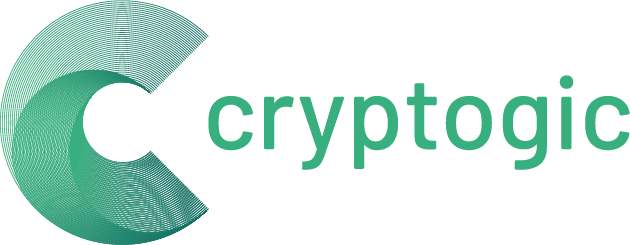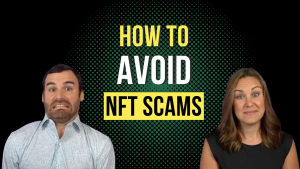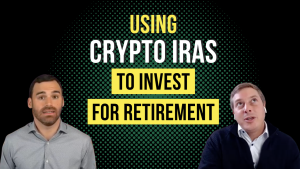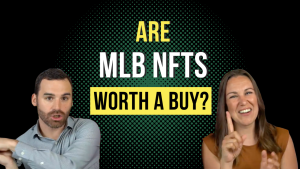Cryptogic provides tools, information, and commentary focused especially on cryptocurrencies, financial and cryptocurrency markets, economic trends, and trading strategies; these tools, information, and commentary are provided for general information purposes only. Neither Cryptogic nor any of its owners or employees are financial planners, investment advisors, or broker-dealers in any jurisdiction. Cryptogic does not provide investment advice, investment services, legal advice, legal services, tax advice, or tax services. Cryptogic does not contain, or constitute, and should not be interpreted as legal advice or opinion. Cryptogic is not a substitute for professional investment advice, tax preparation or legal advice. Consult an investment, tax or legal professional for specific advice about your situation. Click here to read our Website Terms of Use.
NFT Marketing Secrets From A $250M Agency Co-Founder
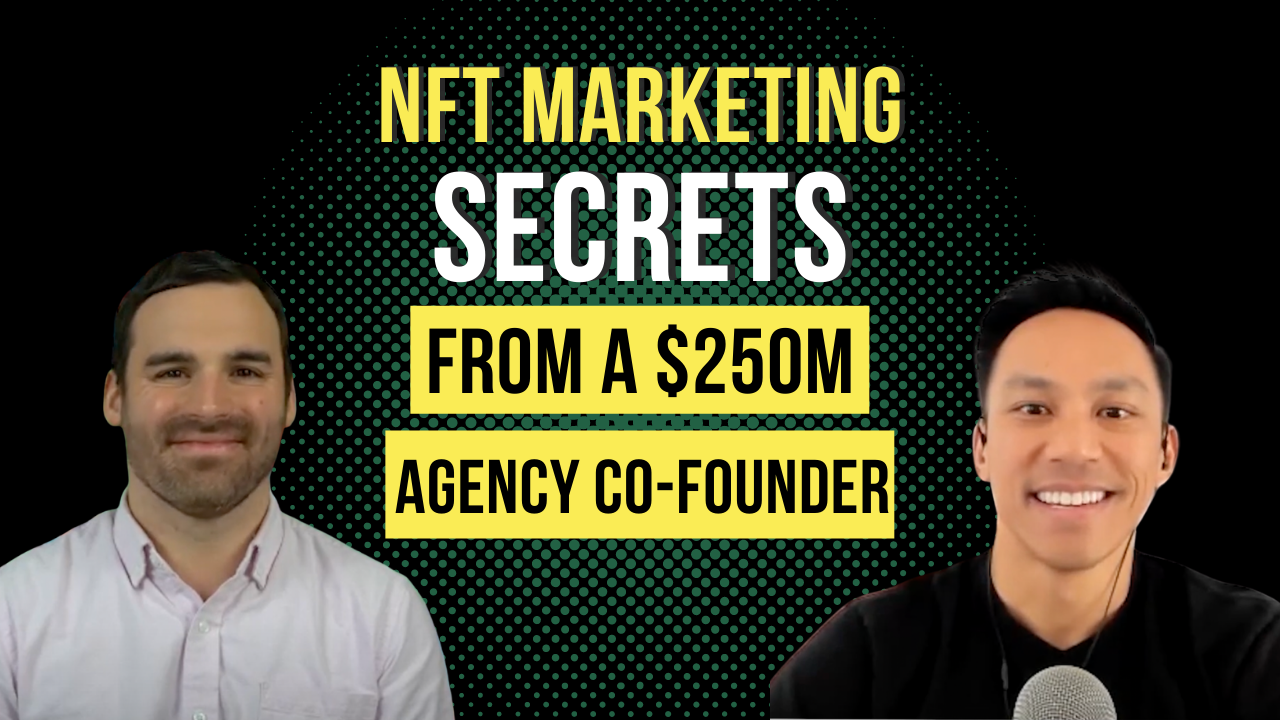
If you want to find successful NFT projects, looking for those using effective marketing strategies is a great start. Projects led by teams adept at community building, innovation, communication, and marketing in general are positioned to last.
Listen along as Jeffrey Maganis, Co-founder of Crowdcreate, one of the leading Crypto/NFT/Web3 marketing agencies, joins the show to share how successful NFT projects are growing their communities.
Watch On YouTube
Episode Highlights
The Leading Crypto And NFT Growth Marketing Agency: “Crowdcreate is a one-of-a-kind growth marketing service used by businesses to accelerate their investor funding and influencer sales. What makes us different? Our track record of raising over $130 million dollars across hundreds of successful client projects. We’re thought leaders on the latest marketing growth strategies and have experience in multiple industries from crypto and NFTs, to fintech and consumer products. We’ve built a proprietary network of investors, influencers, and strategic partners since 2014 to help businesses grow.” (Crowdcreate)
Azuki NFT #9605 Brings In Massive $1.4 Million in Sale: “Owning an Azuki NFT will give you membership access to ‘The Garden’, where artists, builders, and web3 enthusiasts connect. An Azuki Garden Party is ongoing right now at the time of writing. Hip-hop icon Wiz Khalifa performed at the event….The attendees were also surprised at a sudden airdrop of two NFTs in their wallet during the party.” (Cryptotimes)
Connect With Crowdcreate
- Crowdcreate on Discord
- Crowdcreate on Facebook
- Crowdcreate on Instagram
- Crowdcreate on LinkedIn
- Crowdcreate on Twitter
- Crowdcreate on YouTube
- Jeffrey Maganis on LinkedIn
About The Show
NFT Investor Nation is the show for passionate NFT traders, collectors and investors. Listen in as host Scott talks with leading NFT artists and entrepreneurs.
Connect With NFT Investor Nation
- Listen to NFT Investor Nation on Apple Podcasts
- Listen to NFT Investor Nation on Google Podcasts
- Listen to NFT Investor Nation on Spotify
- Visit our YouTube Channel
Transcript
Scott: Hello, and welcome to another episode of “NFT Investor Nation.” Scott back with you and really excited about today’s show because we’re going to be exploring a lot of ideas around NFT projects, what makes an NFT project compelling, about marketing NFT projects and mints, and a whole lot more. And joining me to offer his insights is Jeffrey Maganis who is the co-founder of Crowdcreate.
And he’s got a lot of experience with this very thing. So, Jeffrey, welcome to the show.
Jeffrey: Hey, Scott, thanks for having me on.
Scott: Well, thanks for being here. I want to just dive right into it. What do you see the best NFT projects doing?
Jeffrey: Yeah. So, just some background. At Crowdcreate, we see a couple of hundred NFT projects a week, actually. And these come in organically. And then also I’m an LP investor at several of the top crypto NFT investment funds that are out there. And so some of the best NFT projects that I see, they really offer these four characteristics or things, is number one, it’s good art and collectability.
And so you’ve seen that with Bored Ape Yacht Club, you saw that with CryptoPunks, you saw that with VeeFriends, and even with Azuki. So, good art collectability. Two, solid team. And so VeeFriends backed by Gary Vaynerchuk. You have a lot of successful projects that are out there, they were actually successful artists or, you know, just good operators from their other projects as well.
The third would be utility. And so a lot of these NFT projects have community involved, so the utility of that NFT project for now it allows you access into Discord, allows you access to exclusive member events. And the next evolution of NFTs will also allow you in real-life experiences to whether it’s a Coachella Music Festival, or private concerts, or also just once-in-a-lifetime experiences.
That’s what’s going to offer. And then the fourth thing would be a long-term vision. And so you have to make sure that these NFT projects, it’s not a one-time thing and they’re actually building for the long haul and that could be anything from games to… Yeah. You can think about NFTs as essentially ownership and IP, and you have to think about, you know, is this character going to be the next Mickey Mouse, or the next Batman, or whatever it may be.
Scott: Right, right. And that project roadmap is just so critical, right, where you can kind of see where the team wants to take it, right?
Jeffrey: Exactly.
Scott: So, okay. You mentioned you’ve seen a lot of these types of projects, and that’s through Crowdcreate. Can you tell us a bit about the story behind Crowdcreate, and really how you do intersect with the world of NFTs?
Jeffrey: Yeah. So, Crowdcreate was actually co-founded by myself and my business partner, a long-term friend, his name is Ivan Kan. And it’s spun out of a need for fundraising, online fundraising through crowdfunding. And so we started in 2014. And the ability to raise capital online for a project or in the early days of Kickstarter, Indiegogo, and then we ended up getting into real estate, cannabis, e-commerce, NFTs, crypto.
And really, the impetus behind all of this was about storytelling and community building. And especially when a new project that somebody sees for the very first time, you really have to tell that story and build that community, and then from there, people trust you with what, you know, you can execute on and your vision, and you keep on delivering on that.
And that’s the story of Crowdcreate. Our very first campaign was actually the world’s smallest Bluetooth headset. Before there was the Apple Airpods, we came out with this earbud and it raised $750,000 in just 30 days and we said, “Wow. This is all through the internet.” And so here we are today helping fundraise now NFT and crypto projects.
Scott: That’s incredible. And I love that you mentioned community too because we know that it’s so critical to these NFT projects. I’m curious when we’re talking about, you know, NFTs, the mint is so critical and there’s folks out there that are starting projects and they want to have a successful mint.
So, what are some effective marketing strategies for successful NFT mints?
Jeffrey: The most popular and buzzword right now for marketing successful NFT mints are influencers or PR marketing. But I’ll break down what an influencer is. And so we see influencers as also VC investors, as also politicians.
And so Andrew Yang just did his NFT drop as well. So, we consider him somebody with influence, whether you’re a content creator, an investor, key opinion leader, or just somebody that people trust is who we consider, like, influencer marketing. So, you know, a lot of times these projects are launched by people that already have existing influence in a previous sphere, whatever it may be.
So, yeah. Some of the most effective marketing would be around, you know, “influencers” or thought leaders, and then second would be, you know, PR, you know, getting some of the major news outlets or NFT marketing channels. I do consider, like, podcasts, like, respected, you know, thought leaders like yourself, Scott, that have this network of people that they’ve interviewed guests.
And then Twitter Space is very popular. A lot of the action happens on Twitter itself, and then all the way going down to TikTok, to Discord. Having collaborations and strategic partnerships with other successful projects is also a very good marketing strategy.
And so then you can leverage the network that they’ve built, the trust that they’ve built, and then you do a strategic partnership and, hopefully, like, one plus one equals, you know, four or five, as you saw with the Bored Ape Yacht Club and also CryptoPunks merger and acquisition that recently happened that creates these network effects.
And so other marketing strategies as well. When we talk about the marketing strategies of Web3 and how it’s different from Web2, Web3 promised this new metaverse, you know, of data ownership, of having you involved as part of the community and being a part of the next Facebook build where Facebook, you know, was built on the backs of people that were contributing content, but you never had shared equitable ownership in the platform that you built.
And so now Web3, from a marketing standpoint, it is sharing that message that, “Hey, you’re now part of Facebook. You are Facebook. You are the community.” And it’s very important to share that story and share that compelling value proposition to grow your project.
Scott: I think that’s just so many great points there. And, yeah, I think that’s one of the things to consider is those influencers, what built-in networks are there and so much more when you’re talking about marketing. Kind of from the flip side, there’s folks out there and our listeners, they’re interested in, you know, finding that next great project to be a part of and to, you know, get their NFT and get in on the ground floor, find that next great, you know, Bored Apes, whatever it may be.
What are some strong signals to look for in an NFT project?
Jeffrey: Yes. Some strong signals to look for? Well, for myself, I’m a firm believer in crowdsource due diligence. And so when I find those strong signals, I actually have really smart friends in the world of crypto and NFTs and I met them through these conferences and through just online networking.
And so some of the signals that, you know, a traditional VC investor in the NFT in crypto space is actually novel thinking on what’s the next generation of what… They’re constantly pushing the boundaries of what crypto and NFT technology can do.
So, that’s from a VC investor lens. And so, you know, when OpenSea first started, you know, I spoke to one of the original VC investors that was in the earliest rounds and it was just a new concept. I spoke to another VC investor that was the first money into RTFKT that was acquired by Nike for the metaverse play.
And so they’re just novel thinking of art and how art can be used as this digital collectible. So, yeah. So, the strong signal is definitely revolutionary thinking on what can be done. And it is not just another…you know, there’s this thing like copypasta, which is basically, it’s like you’re the 8th, 9th, 10th profile picture about an ape.
And there’s only so many variations you could do of this, you know, Bored Ape Yacht Club, but that’s definitely a negative signal from a team just not understanding…
Scott: Not innovating, really.
Jeffrey: Correct. And they’re in it for the cash grab at the end of the day. You want to make sure that they’re really innovating.
Scott: Yeah, exactly. So, I think then that does bring up the flip side to that where, you know, people want to know what to avoid. So, what are some negative signals to look for if you’re trying to avoid rug pulls, for example?
Jeffrey: Yes. I mean, the best is to actually look at the code and the contract itself. And you could also, you know, have it audited by different third parties. Also, you know, Anon teams.
As of this recording, most investors and even, you know, influencers do not accept Anon projects, and there’s only very rare specific cases where they are allowed, and that’s typically when we know there’s a deep relationship pre-existing before that. And so, obviously, the Anon project check the smart contract, you know, go through the deep and hard questions, you know, ideally, if you can get them on a call.
But I do think that those teams that are the most transparent that are willing to build long-term relationships both virtually and in-person at these events and conferences, you know, it’s a deeper reflection of their character and whether or not, you know, after this very short, you know, NFT launch and window that they’re going to use the capital responsibly and ethically to actually build the project out because we’ve seen this same song and dance played out in the ICO craze of 2018.
And when you raise too much money, it could actually work against you or the lack of motivation is there if you’re doing it for money from the start, and so on.
Scott: Yeah. I couldn’t agree more. And I’m thinking even in more traditional investments something that always comes up is communication. And how is the team communicating with investors, with folks that are interested in whatever it may be, and in this case the project itself.
And I think that that really…if you’re seeing that communication happening, that transparency, that you’re pointing out there, Jeffrey, I think that is such an important thing. And if you’re not seeing any of that, you know, trade lightly, right?
Jeffrey: Yes, I agree. And something that I’ve noticed is some of the best projects and investors that I ever…they respond literally within one or two hours of me sending out a message. And I’m blown away when they’re a keynote speaker at a major conference in front of tens of thousands of people, and then they still respond to my email and Telegram, and they’re just laser-focused on their vision and goal.
And I am just big fan of, you know, anyone that can manage that at scale.
Scott: Absolutely. Okay. This next question I have is, I guess, kind of ethereal. But I’m curious. There’s this question about, you know, you pointed out at the top, there’s utility, there’s the community, there’s exclusivity, there’s the art itself. If you could try to express how does it all fit together to really make something compelling because some people say, “Well, no, it’s really all about the utility,” or some people say, “Well, I just love the art.
The art is what it’s about,” or some people are like, “Well, it’s just so exclusive.” So, I’m just curious, your sort of take on that.
Jeffrey: Yeah. So, NFT itself, it has really captured pop culture and mainstream attention, but yet, you know, even for Vitalik himself didn’t see this coming. And NFTs are essentially ownership. And so when people think about the art and the utility, collectibles is still a small part of what is going to be the NFT markets.
And so NFTs when it comes to supply chain management, housing title deeds for a real estate, you know, even loans are going to be tokenized, websites itself will be tokenized, and now you can own that fractional ownership of the website. And so when people talk about the art, the utility, some of these projects understand the bigger play behind the art and the utility and what it unlocks.
And so a team that has that long-term vision. And, you know, using Walt Disney and Mickey Mouse and people thought that it was just the mouse, but really it was an entire universe of imagination, of creativity, and what has spawned everything from Marvel Avengers really did come from that, I feel, in my opinion came from that mouse.
Scott: Oh, absolutely.
Jeffrey: And so you could see the IP and that time horizon. So, the art and utility, I don’t know what I don’t know. In the future, it can only bring a lot of this imagination and you as a token holder or a holder of this IP, it’s going to be incredible.
Scott: I want to shift and talk about community because, you know, you guys at Crowdcreate help with community building. So, what are, I guess, the keys to building a strong community for an NFT project?
Jeffrey: Yeah. And so what we’ve seen, and I’m based out here in Southern California and I was just at the NFT LA conference, and the one event that really stuck out was the Azuki after party. It was called the Azuki Garden After Party. And Wiz Khalifa was there.
Scott: Nice.
Jeffrey: There’s probably 100, maybe if not more, maybe like 200 to 300 satellite events. And then of all my friends and everybody I talked to at NFT LA, I was like, “What one event really stuck out to you?” And it was the Azuki party. And everyone was like, “Oh, my gosh.” And then if you see the chart the day after and the week after the Azuki party, it spiked. And so when you talk about community building, the people that are building communities with really, like, memorable experiences that are really putting the extra effort in to actually build a community where people want to visit, hang out with, engage, contribute their intellectual knowledge and feedback to your group are the best communities that we’ve seen, in our opinion.
And then the communities that, you know, want to do nothing more than just stuff it with Discord team members and just have fast responses and whatnot, for me, I don’t think that that’s a community that I would want to share my time. Essentially, a community is like something that you share your time and also your money to these projects. And so, yeah, at the end of the day, the best communities are the ones that really give more than receive and constantly, you know, that… Azuki was a great example of you giving back to your community with, like, Wiz Khalifa was having so much fun, like, people were all in.
Really, it was a group effort to get it executed.
Scott: So, I want to actually tease that out a bit more because, you know, a lot of folks when they’re looking at projects, you know, you start with the Discord community. Okay. How active is it? How many people are joining it? What does the team look like? Are they responding? I guess what you’re saying is, “Hey, that’s great, but if that’s all that’s happening, if there’s not, you know, more events and more of this kind of giving back,” you’re saying that community could be great, but it’s not being built maybe as effectively?
Jeffrey: Yes. And so even in the early days of community building would be Ethereum, the first Ethereum meetup. You had Vitalik. You had, you know, Gavin Wood, you had Charles Hoskinson that was there. And it was really this in-person meeting and the community was just developers that wanted to, you know, bring forth an immutable, transparent, you know, Blockchain.
And so, you know, I’ve been a part of those in-person Ethereum meetups and the community was just everybody sharing on just knowledge and wisdom, and it wasn’t there about… Well, yes, you know, there’s the wealth component that you can make a lot of money, but also just the vibrancy and why Ethereum was able to outlast some of the other projects that, you know, spiked on hype.
And then where are they today? In 2018, all of those hot ICO projects where the people there, the community to pump it and then they left just as easy as they came in? But Ethereum, it was such as…and it still is such a strong community today. When you think about ETHDenver is probably the biggest representation of people giving back, and still the ETHDenver organizers today, they’re tokenizing shirt ownership, they have the right reasons.
It’s all about building. It’s all about gathering and pushing the ecosystem forward.
Scott: I love it. I love it. And there’s just so much to unpack here. And when I think about, you know, all the folks out there trying to determine, “Okay. What project do I want to be a part of?” These are things to keep in mind. As we kind of wind down the discussion, I always like to turn my attention to the future. I’m curious.
What do you see in the future for NFT marketing, you know, growing communities? What are some of the maybe innovations or success stories we may see?
Jeffrey: Yeah. When it comes to marketing for NFT, Web3, crypto, your moat is really your community, and it’s constantly investing in the community, giving them an experience that is valuable to them in their day, and they want to contribute back, and whether that may be building on top of your platform.
Composability is like this term that gets used, like, you have a Bored Ape, and then somebody just built an NFT restaurant on top of that, and so now there’s the first, you know, NFT restaurant that’s out there. So, NFT marketing really goes back to community building, really goes back to people.
And rather than the old way of you forcing somebody to get the work done in, like, the corporate environment, the new is that people are volunteering their time, their money, their talents, their insights, their capital to be able to help your project grow because, you know, NFTs can also be working as part of an organization.
In the future, you know, Fortune 100 companies, it’s like an NFT to actually work there or you can invest in the culture and whatnot. So, yeah. When it comes down to marketing, it is a community building and just, you know, having key influencers or people of influence really putting their time and their money and having skin in the game to help you grow.
And it’s because they volunteer to do it rather than they’re kind of locked in and forced to do it.
Scott: Fantastic. I think that’s spot on. It’s going to be exciting to see where it all goes, what the new innovations are as time marches on. Jeffrey, thank you so much for joining me on the show today, offering so much great insight onto all of this. And I’m really excited to listen back to this and really think on some of these concepts as I consider, you know, upcoming projects.
And if folks want to find out more about Crowdcreate and what you guys do, where can they do that? Where can they connect?
Jeffrey: Our website, so it’s crowdcreate.us. And we love engaging with the community ourselves. We host these free virtual conferences where you can actually listen to these thought leaders that I shared. And it’s for free. And really, we’re building our own community and we care about pushing and moving the industry forward. And if you have a project and you need help with marketing, always happy to chat.
So, yeah, the website is crowdcreate.us. And see you there.
Scott: Fantastic. And of course, we will have links to that in the show notes. Thanks again.
Jeffrey: Thanks, Scott.
